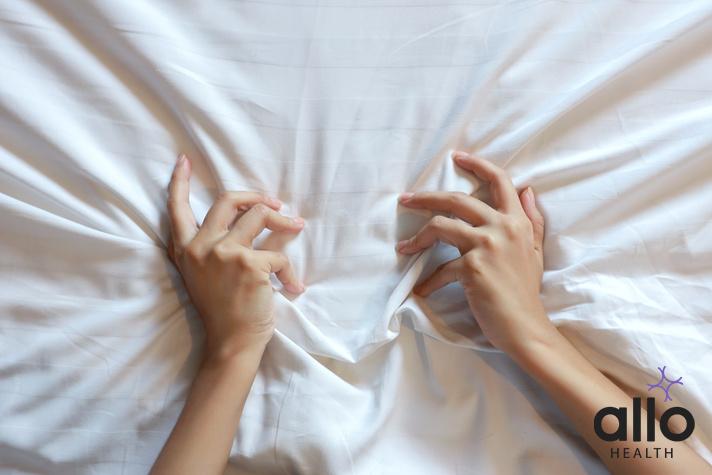What Are The Causes Of Pubic Lice (Crabs)?

Allo Health is dedicated to personalized well-being, offering support and trusted information tailored to individual health goals. The platform emphasizes human-generated content, led by a distinguished medical team of experts, including physicians and sexual health specialists. Their commitment to credibility involves rigorous fact-checking, authoritative research, and continuous updates to ensure accurate, up-to-date information. Allo Health's unique approach goes beyond conventional platforms, providing expert-led insights and a continuous commitment to excellence, with user feedback playing a crucial role in shaping the platform's authoritative voice.

Dr Thanushree, has her MBBS from Kanachur Institute of Medical Sciences, Mangalore
Why This Was Upated?
Our experts continually monitor the health and wellness space, and we update our articles when new information became available.
Updated on 10 February, 2025
- Article was updated as part of our commitment to diversity, equity, and inclusion.
"The following blog article provides general information and insights on various topics. However, it is important to note that the information presented is not intended as professional advice in any specific field or area. The content of this blog is for general educational and informational purposes only.
Book consultation
The content should not be interpreted as endorsement, recommendation, or guarantee of any product, service, or information mentioned. Readers are solely responsible for the decisions and actions they take based on the information provided in this blog. It is essential to exercise individual judgment, critical thinking, and personal responsibility when applying or implementing any information or suggestions discussed in the blog."
Pubic lice, commonly known as “crabs,” are a type of parasitic insect that infests the pubic hair and genital area of humans. While the primary cause of pubic lice infestation is direct physical contact with an infested person, there are several factors that contribute to the spread and prevalence of these tiny parasites. In this article, we’ll explore the causes of pubic lice infestation and how you can protect yourself from becoming infected.
Direct Physical Contact
The most common cause of pubic lice infestation is direct physical contact with an infested person. This can occur during sexual activity, but it’s not the only way pubic lice spread. Close personal contact, such as sharing clothing, towels, or bedding with someone who has pubic lice, can also lead to infestation. Unlike other types of lice, pubic lice cannot jump or fly, so direct contact is necessary for transmission.

Lack of Personal Hygiene
Poor personal hygiene can also contribute to the spread of pubic lice. Infrequent bathing or washing of the genital area may provide an environment conducive to lice infestation. Additionally, sharing unwashed clothing or bedding can increase the risk of transmission.
Sexual Activity
Engaging in unprotected sexual activity with multiple partners can increase the risk of pubic lice infestation. Pubic lice can be transmitted through intimate contact, including genital-to-genital contact or oral-genital contact. Using condoms can help reduce the risk of transmission, but it may not completely eliminate the risk.

Close Living Conditions
Living in close quarters with others, such as in dormitories, military barracks, or group homes, can increase the risk of pubic lice infestation. In these settings, where personal space and privacy may be limited, the likelihood of coming into contact with infested individuals is higher.
Traveling to Infested Areas
Traveling to regions where pubic lice infestations are more prevalent can also increase the risk of becoming infested. Infestations may be more common in certain geographic areas or among certain populations, so travelers should take precautions to avoid contact with infested individuals and practice good personal hygiene.
Pubic lice infestations are caused by direct physical contact with an infested person, as well as other contributing factors such as poor personal hygiene, unprotected sexual activity, close living conditions, and traveling to infested areas. By understanding the causes of pubic lice infestation and taking preventive measures, such as practicing safe sex, maintaining good personal hygiene, and avoiding close contact with infested individuals, you can reduce your risk of becoming infested. If you suspect you have pubic lice, seek medical attention for diagnosis and treatment. Remember, early detection and prompt treatment are key to managing pubic lice infestations effectively.








































